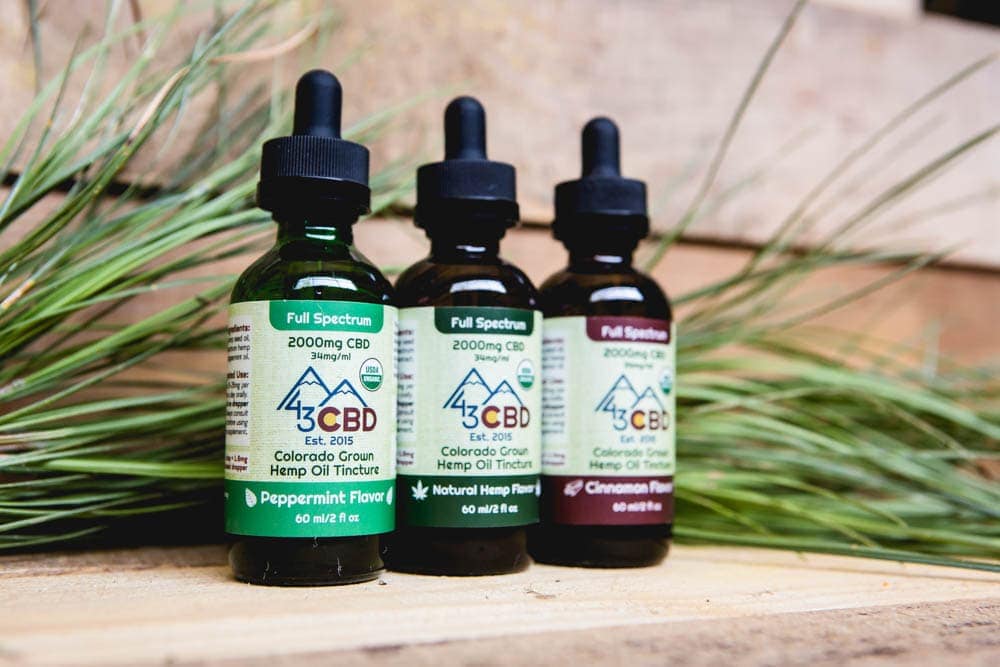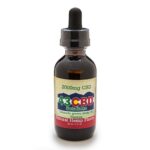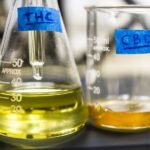
Since the 2018 farm bill allowed for broader hemp cultivation in the United States, the market has been flooded with all sorts of cannabis products.
This, along with cannabis-related marketing tactics, has made it difficult to understand what you are paying for and if a certain product is trustworthy.
Let’s set the record straight. In this piece, we will breakdown the difference between hemp oil and CBD oil, address unethical marketing tactics, and how to spot them so you know the real value of what you are purchasing.
Table of Contents:
Hemp Oil vs. CBD Oil: Are they the Same?
What is Hemp Oil (Hempseed oil)
Tricky Marketing Tactics using the term “Hemp Oil”
Which is Better: CBD Oil or Hempseed Oil?
Choosing a CBD Product backed by Third-Party Lab Results
Hemp Oil vs. CBD Oil: Are they the same?
No, hemp oil and CBD oil are not always the same. The source of confusion generally lies with the term “hemp oil” and how it’s loosely associated with many different products.
Hemp oil is often just another term for CBD oil, which is a mixture of CBD extract and a carrier oil and has been sought after for the potential health benefits associated with CBD.
Although, with the recent surge in demand for CBD oil, this term has been exploited to potentially mislead consumers into buying “hemp oil” products with claims that they are the same as products that contain a CBD extract.
With this “green rush”, hemp oil is now commonly associated with hemp seed oil, which contains little to no CBD, THC, or other cannabinoids found in a full spectrum CBD extract.
Hempseed oil does have its own unique health properties. It has a nearly perfect balance of omega-3 and omega-6 polyunsaturated fatty acids and is used in many healthcare applications.
Additionally, there are many products that contain both hemp seed oil and CBD extract since hemp seed oil is a great and bioavailable choice for a carrier oil. Many believe that using the two oils together produces what is known as the “Entourage Effect”: a proposed idea that multiple cannabis compounds hold a synergistic relationship to boost the overall health benefits of a whole plant extract.
To understand which type of hemp product is right for you, it is important to understand how each oil is crafted, the applications in which they are used, and the potential health benefits associated with them.
Hemp Oil (Hempseed Oil)
Due to its perfect balance of omega-3 and omega-6 polyunsaturated fatty acids, hempseed oil is commonly used in cosmetic and pharmaceutical products.
Unlike a CBD extract, hemp oil is crafted from hemp seeds rather than the cannabis plant. Hemp seeds are often known as a “superfood”, having a complete source of nutrition for a well-balanced lifestyle.
Benefits and Effects of Hemp Oil
Aside from the perfect balance of omega-3 and omega-6 fatty acids, hempseed oil is also rich in healthy fats, high-quality proteins, dietary fiber, and essential minerals. Additionally, it holds an excellent source of vitamin E, iron, and gamma-linolenic acid, which is associated with reproductive health, improved metabolism, and enhanced brain functionality.
Some of the potential benefits associated with hemp oil include:
- Anti-inflammatory Properties
- Antioxidant Properties
- Skin Treatment
- Promotes Brain Health
- Reduces Risk of Heart Disease
It should be noted these potential health benefits are quite different than the potential health claims associated with CBD.
How Hemp Oil is Used
Hempseed oil is often used by consumers to reduce inflammation and to treat many different skin conditions including:
- Eczema
- Acne
- Psoriasis
- Lichen planus
The use of hempseed oil for these conditions is mainly attributed to the ideal ratio of polyunsaturated fatty acids – including omega-3 and omega-6.
How Hemp Oil is Made
Hempseed oil is crafted from cold-pressed hemp seeds as opposed to extraction from the actual hemp plant.
It can vary in color from dark green to clear green oil and is often unrefined. The finished hempseed oil contains little to no THC or CBD.
While hemp seed oil is a great choice for overall health, it should not be mixed up with CBD, which has its own set of potential benefits.
CBD Oil
CBD is one of over 100 cannabinoids found in the cannabis plant and has been at the forefront of many studies for its potential health benefits.
While hemp seed oil has some basic nutritional benefits, CBD oil is well-known for having a wide variety of potential therapeutic benefits such as relieving pain, alleviating symptoms from arthritis, reducing stress, and helping with sleep disorders.
Benefits and Effects of CBD Oil
Recent studies have found that CBD could be responsible for the pain-relieving effects of cannabis and has been found to potentially assist with many conditions that affect sleep, stress, and the immune system.
These studies have found that CBD may impact the endocannabinoid system, which regulates many of the human body’s functions including appetite, pain, mood, etc.
CBD is commonly used for the following potential benefits:
- Anti-inflammatory properties
- Stress Relief
- Relieving symptoms of anxiety
- Assisting with Depression
- Alleviating symptoms associated with Epilepsy
- Helping with Sleep Disorders
While many recent studies support the fact that CBD has potential therapeutic benefits, there have yet to be any health claims supported by the FDA. Nevertheless, the massive amount of cannabis research in recent years has shown strong support for the power of CBD and other cannabinoids found in hemp.
How CBD Oil is Used
CBD oil is used in many different forms – depending on consumers’ specific needs and preferred method of use.
The most common forms of CBD include:
- CBD Tinctures (CBD extract mixed with a carrier oil)
- Salves, Lotions, and Creams
- Gummies
- Capsules
When choosing a CBD product, it is important to understand exactly how it was made and whether the extract is a full spectrum or a CBD isolate.
How CBD Oil is Made
CBD oil can be extracted from the flowers (buds) of the hemp plant – basically any part but the seeds. The extract from hemp leaves contains the highest levels of cannabinoids and terpenes and will also draw trace amounts of THC.
There are a variety of different methods used for CBD extraction including CO2, alcohol, and butane extraction.
The hemp extraction process may create a full spectrum, broad spectrum, or CBD isolate extract.
Different Types of CBD Oil
The three common forms of a hemp extract are CBD isolate, full spectrum, or broad spectrum. Each of these types has a different extraction process and provides different effects. There is no right or wrong form of CBD extract exactly, but understanding how each type is created may help guide you to the right product to include in your health regimen.
How CBD Isolate is Made
The CBD isolate extraction process removes every compound except for CBD, which produces a white powdery substance that is 99% pure CBD. Using a technique called chromatography, each compound is separated into a mixture, which removes all the terpenes (which are responsible for the hemp flavor and scent), plant matter, and other cannabinoids – including THC.
While CBD isolates may be a preferred extract for adding to food and drinks with a neutral taste and smell, it lacks any other of the 100+ cannabinoids found in the cannabis plant – which may potentially yield fewer therapeutic benefits than an extract containing multiple cannabinoids.
How Full Spectrum CBD is Made
The full spectrum extraction method preserves the many different cannabinoids and terpenes of the hemp plant and contains almost all the naturally occurring elements found within. This means that full spectrum CBD is a “whole plant” extract and provides the potential health benefits of multiple cannabinoids working together, including cannabinol (CBN), tetrahydrocannabinol (THC), and Cannabigerol (CBG) – to name a few.
Here is a good resource on the “Entourage Effect”, which explains the synergistic relationship between multiple cannabinoids and how it could potentially boost the therapeutic effects of CBD and other elements in cannabis.
How Broad Spectrum CBD is Made
Broad Spectrum extracts are the result of consumers looking for a product that contains a wide array of cannabinoids but without the trace amounts of THC included. It begins as a full spectrum extract but then goes through a refinement process that removes any and all traces of THC.
While it is highly unlikely that an individual would feel any psychoactive effects associated with the trace amounts of THC found in a full spectrum extract, some may find a broad spectrum product a better choice if they have a hypersensitivity to THC or want to avoid the chance of failing a drug test.
Tricky Marketing Tactics using the term “Hemp Oil”
While the term “hemp oil” may be the most fitting label for a CBD extract, and is often used for CBD products, many companies have decided to use the term in conjunction with hemp seed oil, which contains little to no CBD or other beneficial cannabinoids or terpenes.
In fact, you could likely find a long list of products on Amazon that are labeled as “hemp oil” but contain no cannabinoids whatsoever. Many of these products will avoid using the words “hempseed oil”, which could potentially confuse a consumer into believing that the product contains CBD.
If you come across a product that has a vague description and avoids any mention of cannabidiol (CBD) or any other cannabinoids, then the product is likely derived from hempseed oil and not a CBD extract.
The best way to be 100% certain of what compounds are in a hemp oil is to check out the third-party lab results provided by a company. It has become the gold standard of trust and transparency for CBD companies to provide these lab results and make them easily accessible to the public – so you can know for sure exactly what is in a product.
These lab results will show an unbiased representation of the cannabinoids and terpenes found in any specific hemp-based product. Here is an example of what you can expect from third-party lab results.
Which is Better: CBD Oil or Hempseed Oil?
It is hard to make the claim that one oil is better than the other since each is used for different reasons. The important takeaway here is to know which type of product is right for your needs. Hempseed oil may be the right choice when it comes to skincare applications or if you are looking for the additional nutritional value of hemp seeds in your diet. The optimal health ratio of omega-3 and omega-6 fatty acids may be helpful for those looking to balance these polyunsaturated fats in their bodies.
A full spectrum CBD oil may be the right choice if you are looking for the potential benefits of cannabinoids which may include stress relief, anti-inflammatory, and anti-anxiety effects. While there is much more research to be conducted in order to fully reveal the therapeutic benefits found in cannabis, we know that these elements affect the endocannabinoid system found in our brain – which is responsible for maintaining optimal levels of many different essential functions including immune response, appetite, memory, and stress.
Choosing a CBD Product backed by Third-Party Lab Results
The best way to know exactly what you are paying for is to find a business that will provide easily accessible and transparent third-party lab results.
At 43 CBD Solutions, each CBD product includes a QR code that will take you directly to that batch’s lab result. Additionally, the lab results for each batch of each product are uploaded to our website and available to the public for any product dated within the past 3 years.
Once you check out the lab results, feel free to browse our shop to choose a full spectrum or broad spectrum CBD product to fit your needs.
Trust and transparency are at the forefront of our business and we make it our goal to fully explain each step of our natural process starting with our USDA organic-certified hemp plants. If you have any questions about our CBD and extraction process, feel free to give us a call at (970) 309-7890 or contact us here.














